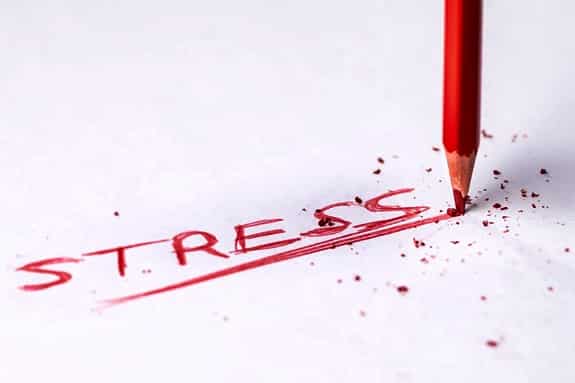Whether you’re a busy hospital doctor or an assistant at a private practice, it’s easy to get burnt out quickly. So much is demanded from healthcare workers on a daily basis. Unfortunately, that feeling of exhaustion can lead to poor performance and can affect your health.
People experience burnout for different reasons. Some healthcare professionals work long hours. Others work extended night shifts. For others, it’s working with demanding patients or seeing a lot of illnesses and injuries. All of these factors take a toll on you.
No matter what might be causing you to feel burnt out, you can take some preventative measures. Not only can you avoid feeling so sluggish and tired of your job, but there are things you can try to make you feel better almost instantly!
Healthcare Burnout Prevention
This guide will help you to recognize the signs of potential burnout and let you know what you can do about it. Employees in every industry can feel this way from time to time.
You don’t have to feel this way every day for the rest of your career. It’s normal to feel a little overwhelmed and tired from time to time. But, it shouldn’t be the definition of how you feel about your job.
What Are the Signs of Burnout?
Before we look more closely at the issue, it’s important to identify the signs and symptoms.
- Psychology Today defines burnout as an experience of exhaustion. This can be physical, mental, or emotional.
Some can easily be mistaken for things like tiredness, boredom, or even just a ‘bad day.’ But, when those bad days start adding up quickly, it’s fair to assume there is something deeper going on.
Let’s take a look at some of the most common signs:
[su_list icon=”icon: check-circle”]
- Constantly feeling fatigued
- Lack of passion and excitement about your job
- Feeling as though you’re underappreciated
- Emotionally exhausted and experiencing mood swings
- Physical pain or stomach problems
- Starting to feel insensitive or numb toward patients
Unfortunately, these symptoms are often the start of what it can feel like. If it’s left ignored or untreated, it can lead to deeper issues, including:
- Appearing withdrawn from everyday situations and relationships
- Extreme forgetfulness
- Dependence on things like drugs and alcohol
- Inability to keep appointments/poor time management
- Depression
[/su_list]
It can affect everyone differently. But, if you’re experiencing one or more of the signs listed here, you may want to take a closer look at your job and how it’s making you feel. It’s easy to make excuses and assume your exhaustion is from something else. But, burnout in the healthcare industry is quite common, and shouldn’t be ignored.
[su_youtube url=”https://youtu.be/eGb8_VNy5xU”]
10 Tips for Dealing with Career Burnout
Now that you know what to look for when it comes to occupational burnout let’s go over what you can do to avoid it.
-
Acknowledge the Issue(s)
One of the best ways you can let go of burnout is to acknowledge that you’re going through it.
It’s easy to confuse exhaustion with something else or blow it off completely. Unfortunately, over time it keeps building up. The symptoms that start out small can continue to grow and worsen.
If you allow this to happen, you could reach a state of depression. You might even start to experience severe physical symptoms that can cause medical problems. If you accept the fact that you’re feeling exhausted in some way, you can begin to look for other ways to remedy the problem.
Once you’ve acknowledged the issue yourself, you can bring your concerns to your manager. No reasonable employer wants their staff to feel over-worked and underappreciated. Most of them have the best interest of their employees in mind.
If you feel like you’re dealing with occupational burnout, talk to your employer about it. Together, you may be able to come up with a solution that can get you back on track and help you to feel better.
-
Practice Self-Care
Many people in the healthcare industry have a mindset of putting others first. This can be especially true for those who work directly with patients, like doctors and nurses. While this is a noble characteristic, it can sometimes go too far. If you’re always putting patients above everything else, you could be ignoring your own needs.
Self-care is essential in any job, but especially in the medical field. Healthcare workers are often on their feet for long hours, seeing many patients a day. Sometimes, they have to deal with the hardships of disease or even death.

While you’re helping people on a daily basis, it can take an emotional toll to be around people who are sick or in pain. If you don’t take time for yourself emotionally, you could start to bottle things up, which could lead to depression.
It’s almost as important to take care of yourself physically. You might have a busy schedule but taking time each day for self-care (even if it’s just for a few minutes) can make a significant difference.
Self-care comes in many different forms. For some people, It’s a physical thing. Something like a leisurely walk can make a difference. For others, emotional self-care is more important.
Take time each day to breathe, or practice meditation. Find what it is that makes you feel more like yourself and take time each day to do it!
-
Re-Connect with Someone
One possible reason for burnout a lack of work-life balance. If you feel like you’re working all the time, you might have fallen out of touch with some important people in your lives. So, take the time to re-connect with someone you haven’t had a chance to spend time with in a while.
Grab your calendar and pick a date. Call or meet that person on that date for no less than 20 minutes. While you’re with them, make a plan to do it again and set a date.
When you write something down, you’re less likely to back out of it. By forcing yourself to get away from work and spend time with someone you care about, you can feel like you have more balance in your life. Try to do this about every two weeks (or more often if you can!).
You can keep up these ‘dates’ with the same person or re-connect with friends or family members. These interactions can give you something to look forward to and think about outside of work, which can make a big difference in how you feel.
-
Consider Making Changes
If you like what you do, but it’s causing you physical or emotional stress, consider changes in your job. This could include things like working fewer hours or working from home if you have an administrative job.
Some people don’t do well working specific shifts. A change in your hours could make a difference. Once you identify what might be causing the problem, try to insert some flexibility into your job. Of course, you’ll have to talk with your supervisor about any changes.
You could also make some personal changes that could eventually benefit your career. This includes things like continuing your education. Perhaps you’re happy with a healthcare job, but you want to try something different or more advanced.
If you are feeling stagnant in your current position, then going back to school could help you to feel more motivated and inspired.
-
Change Your Attitude
This might seem easier said than done for some people. But, adjusting your attitude to something consistently positive can make a big difference in how you feel at work. Keep in mind that there’s a difference between changing your attitude and just going through the motions.
It can take a lot of effort at first to make an attitude change. It includes things like considering how you can improve your general outlook.
Once you figure that out, doing some of the following things can help you to feel better and more energetic:
[su_list icon=”icon: check-circle”]
- Support and recognize your co-workers for their achievements
- Understand what you can and can’t control, and accept it
- Choose to let things go
- Don’t always agree to unrealistic demands
[/su_list]
Completely changing your attitude can take time and resilience. But, if you’re able to change your mindset about your job, you can feel better on a daily basis and may not feel as physically or emotionally drained.
-
Find Support
When you’re feeling burnt out, it’s easy to want to hide away and keep everything inside. Find a source of support in your life. While talking to your boss about what you might be experiencing is a good thing, your support system should be people who are closer to you.
Your support system could be co-workers, family, friends, or even a spouse. Getting it out of your system is one of the best things you can do for yourself. Burnout often relates to frustration, and sometimes even anger. It’s never a good idea to keep those feelings locked inside.
If you’re not ready to talk about the issues you’re facing with someone in person, there’s good news. Healthcare burnout is a reasonably common problem. As a result, there are many different online groups and forums where people discuss it.
You might start out just reading what others have to say. Eventually, though, it can be therapeutic to share your thoughts and feelings. Sharing these things with people who are going through similar situations can be beneficial for everyone involved.
Even if you can’t change your situation, then talking about it with someone who will listen as a supporter can make you feel better quickly. Keeping things bottled up will only lead to more exhaustion and can make you resent coming to work each day. That’s not good for you, other staff members, or any patients you might have to work with.
-
Assess Your Job
The healthcare industry is always growing, so it offers excellent job security. It also gives so many people a chance to assist others on a daily basis. So, it’s no surprise so many people get excited about a job in the medical field.
But, sometimes burnout is caused because people realize the healthcare industry isn’t what they want to be involved with. If you’re feeling exhausted, depressed, and unmotivated, it could be time to take a closer look at your job.
Does your career match up with your interests? Is it something you always wanted to do? Do you see yourself doing something else? These are vital questions to answer, and your responses may make your decision about your career easier. If you’re not passionate about what you do, don’t be afraid to admit that in a self-assessment.

If you do realize that your current job isn’t what you want to be doing, try to assess where your skills could be used and what you have a passion for. Sometimes, the best thing you can do to avoid burnout is to admit a particular job isn’t right for you. This doesn’t mean you need to get out of medicine completely. Perhaps another area might be a better fit.
Take a look at what you like about your job as well as the things that are causing you to become drained. Whether you need to make a change out of healthcare or not, taking a closer look at your job is an excellent place to start.
-
Develop Other Interests
Your job can consume a lot of your time and a lot of your thoughts. It’s easy to think about patients after work, or feel stressed about what you need to do the next day, etc. With all this in mind, your career can become your whole life.
One great way to remedy this is by developing interests outside the workplace. Different hobbies can be a great way to separate your personal life from your work life. Sometimes, clear lines need to be drawn. Finding an interest (or a few!) outside of work can help to make those lines clearer so you can detach from your job when you’re off the clock. When you’re able to do that, it’s less likely you’ll feel so tired and stressed about it all the time.
Of course, the interests you choose should be things that only keep you occupied but engaged. Don’t pick a hobby to have something to do. Instead, look for something that interests you. It will give you something to look forward to outside of work, and to share with other people.
-
Identify the Causes
One of the best ways to manage the stressors from your job is to identify what they are. The more you know about what’s causing you to feel exhausted or run-down, the more you can focus on those particular things.
The best way to go about managing these stressors is to develop a plan of action. Once you’ve determined what they are, break them down into smaller ‘tasks’ that you can overcome. Each stressor may need to be dealt with differently. Don’t expect that you’ll be able to wipe everything clean all at once. But, even working on getting rid of one area of stress at a time can make a huge difference and help you to feel better quickly.
If you’re not quite sure how to identify what might be causing burnout in your career, keep reading. We’ll help by listing some of the most common causes in the healthcare industry later in this article.
-
Exercise
Believe it or not, exercise can help to prevent burnout and make you feel better almost instantly. Exercise can be different for everyone. It doesn’t necessarily mean you have to run a marathon or lift a bunch of weights.
Instead, it can be something as simple as taking a stroll every day or going for a gentle jog. For other people, pushing themselves and trying to reach a fitness goal can be a great way to combat burnout.
Exercise naturally releases endorphins in your body. This helps to give you energy and can instantly boost your mood. Something as small as a quick jog around the neighborhood can help with the exhaustion of a long day.
Put together an exercise plan that works for you, such as the 12-week plan that’s recommended by the NHS. You may quickly find that exercising makes a world of difference when it comes to dealing with burnout on the job.

What Causes Burnout on the Job?
Again, feeling burnt out isn’t uncommon in a medical career. The causes for these feelings are different for everyone since this is such an individualized problem. But, some consistencies can cause most people to become exhausted, emotionally and physically.
Some of these include:
[su_list icon=”icon: check-circle”]
- The practice of medicine itself. Dealing with sick or injured people on a daily basis can be taxing for anyone’s mental state. Even if you love your job, it isn’t easy to see people in weakened conditions each day.
- Lack of work-life balance
- Perfectionism
- Wanting to do everything yourself
- Poor leadership skills by your supervisors
[/su_list]
As you can see, burnout can be caused by outside forces or situations, but it can also be a result of something you’re doing or not doing. We’re often our own worst enemies when it comes to treating ourselves well on the job. It’s not always easy to identify what’s causing us to feel so exhausted when it comes to our career path.
Keep in mind that these aren’t the only causes of burnout. But, many ‘minor’ causes can stem from these same categories. Be aware of this if you’re feeling drained or overworked. Your potential cause of burnout may not be one of the reasons listed here, but it could fall under the same idea.
Is It Possible to Prevent Burnout in Healthcare?
Healthcare is one of the busiest and most demanding. No matter what type of job you have within this field, you’ll probably be dealing with people on a regular basis. You also play a part in helping people every day, whether you take a hands-on approach or work in an office setting.
Unfortunately, that can cause a lot of pressure and stress. Combine that with the fast pace of hospitals and clinics, and it’s no wonder so many people in this industry are feeling burnt out and overworked.
Now you know what to look for, and what might be causing the problem to begin with. Thankfully, as you can see, there are many ways to fight back against burnout. If you’re starting to feel the effects, use one of the suggestions listed here to start enjoying your job and your life again.






